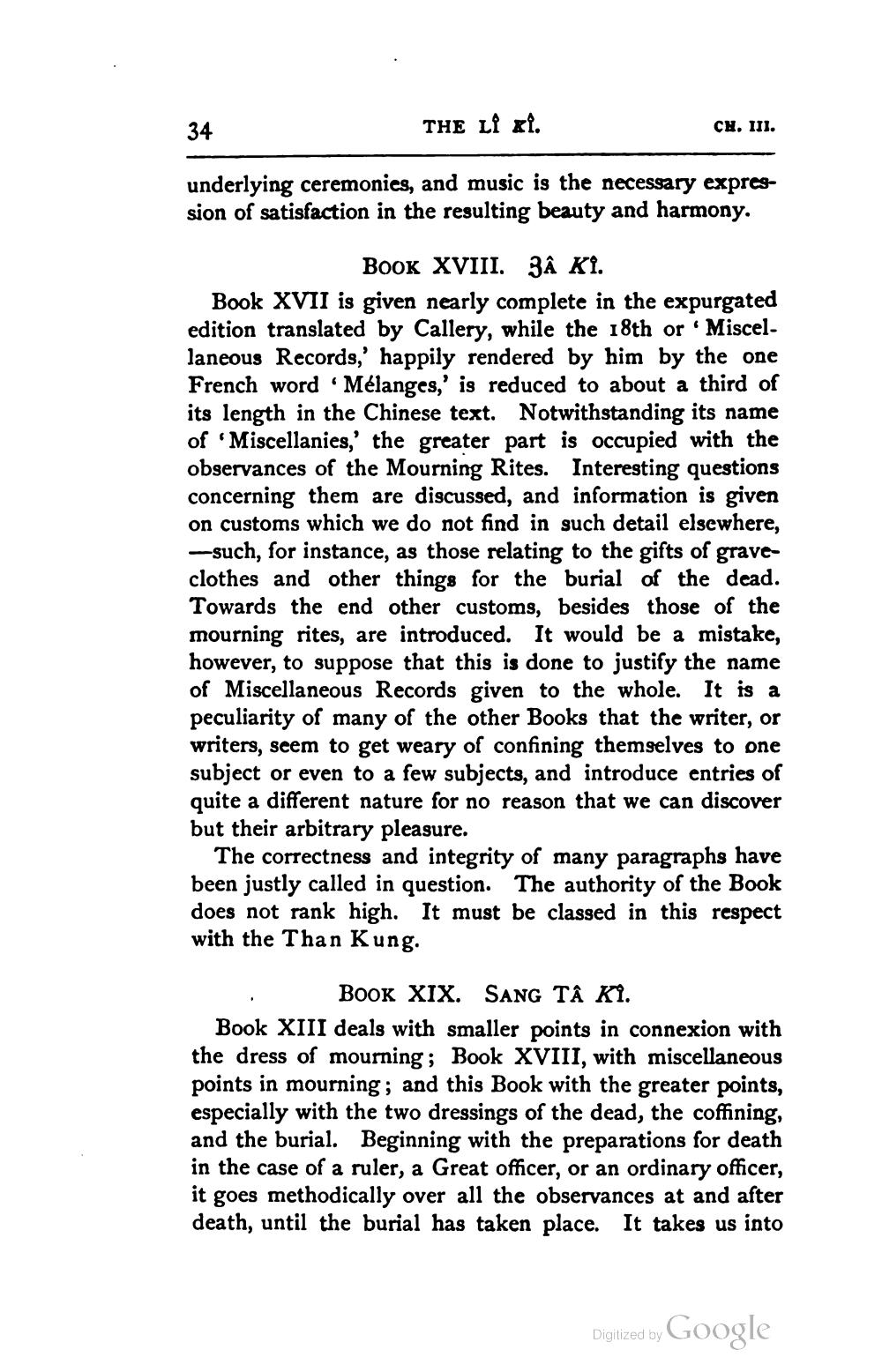________________
34
THE LÎ xi.
CH. III.
underlying ceremonies, and music is the necessary expres sion of satisfaction in the resulting beauty and harmony.
BOOK XVIII. 3Â KI. Book XVII is given nearly complete in the expurgated edition translated by Callery, while the 18th or · Miscellaneous Records,' happily rendered by him by the one French word Mélanges,' is reduced to about a third of its length in the Chinese text. Notwithstanding its name of Miscellanies,' the greater part is occupied with the observances of the Mourning Rites. Interesting questions concerning them are discussed, and information is given on customs which we do not find in such detail elsewhere, --such, for instance, as those relating to the gifts of graveclothes and other things for the burial of the dead. Towards the end other customs, besides those of the mourning rites, are introduced. It would be a mistake, however, to suppose that this is done to justify the name of Miscellaneous Records given to the whole. It is a peculiarity of many of the other Books that the writer, or writers, seem to get weary of confining themselves to one subject or even to a few subjects, and introduce entries of quite a different nature for no reason that we can discover but their arbitrary pleasure.
The correctness and integrity of many paragraphs have been justly called in question. The authority of the Book does not rank high. It must be classed in this respect with the Than Kung.
BOOK XIX. SANG TA KỲ. Book XIII deals with smaller points in connexion with the dress of mourning; Book XVIII, with miscellaneous points in mourning; and this Book with the greater points, especially with the two dressings of the dead, the coffining, and the burial. Beginning with the preparations for death in the case of a ruler, a Great officer, or an ordinary officer, it goes methodically over all the observances at and after death, until the burial has taken place. It takes us into
Digitized by Google




